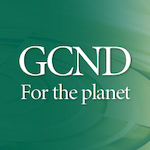Habits and genetic inheritance: Lamarck's revenge?
DOI:
https://doi.org/10.33393/gcnd.2021.2289Keywords:
Epigenetic inheritance, Epigenome, Genome, Habits, MicrobiomeAbstract
Human phenotype, the set of characteristics manifested by a living organism, is determined by genetic information expression dependent on genome, epigenome and microbiome. There is a kind of bidirectionality between humans and their genome with significant influence by environment and human behaviour. In the timeline of evolution we see that genetic modifications take millions of years to take place and consolidate, as per Darwinian principles, but environment and our habits are able much more rapidly to influence our phenotypic response, through epigenetic and microbiotic pathways, as per Lamarckian hypothesis (Fig. 1). Our habits (physical, psychological, environment) are able to determine changes in gene expression and potentially influence our children’s one. The evidence of these new concepts should be a further stimulus to a more conscious lifestyle.
References
- Gurdon JB. From nuclear transfer to nuclear reprogramming: the reversal of cell differentiation. Annu Rev Cell Dev Biol. 2006;22(1):1-22. https://doi.org/10.1146/annurev.cellbio.22.090805.140144 PMID:16704337
- Lambrot R, Xu C, Saint-Phar S, et al. Low paternal dietary folate alters the mouse sperm epigenome and is associated with negative pregnancy outcomes. Nat Commun. 2013;4(1):2889. https://doi.org/10.1038/ncomms3889 PMID:24326934
- Zenk F, Loeser E, Schiavo R, Kilpert F, Bogdanović O, Iovino N. Germ line-inherited H3K27me3 restricts enhancer function during maternal-to-zygotic transition. Science. 2017;357(6347):212-216. https://doi.org/10.1126/science.aam5339 PMID:28706074
- Jirtle RL, Skinner MK. Environmental epigenomics and disease susceptibility. Nat Rev Genet. 2007;8(4):253-262. https://doi.org/10.1038/nrg2045 PMID:17363974
- Tang W-Y, Ho SM. Epigenetic reprogramming and imprinting in origins of disease. Rev Endocr Metab Disord. 2007;8(2):173-182. https://doi.org/10.1007/s11154-007-9042-4 PMID:17638084
- de Assis S, Warri A, Cruz MI, et al. High-fat or ethinyl-oestradiol intake during pregnancy increases mammary cancer risk in several generations of offspring. Nat Commun. 2012;3(1):1053. https://doi.org/10.1038/ncomms2058 PMID:22968699
- Gapp K, Jawaid A, Sarkies P, et al. Implication of sperm RNAs in transgenerational inheritance of the effects of early trauma in mice. Nat Neurosci. 2014;17(5):667-669. https://doi.org/10.1038/nn.3695 PMID:24728267
- Roberts MD, Brown JD, Company JM, et al. Phenotypic and molecular differences between rats selectively bred to voluntarily run high vs. low nightly distances. Am J Physiol Regul Integr Comp Physiol. 2013;304(11):R1024-R1035. https://doi.org/10.1152/ajpregu.00581.2012PMID:23552494
- den Hoed M, Brage S, Zhao JH, et al. Heritability of objectively assessed daily physical activity and sedentary behavior. Am J Clin Nutr. 2013;98(5):1317-1325. https://doi.org/10.3945/ajcn.113.069849 PMID:24047914
- Lieberman DE. Is exercise really medicine? an evolutionary perspective. Curr Sports Med Rep. 2015;14(4):313-319. https://doi.org/10.1249/JSR.0000000000000168 PMID:26166056
- Schulz LO, Bennett PH, Ravussin E, et al. Effects of traditional and western environments on prevalence of type 2 diabetes in Pima Indians in Mexico and the U.S. Diabetes Care. 2006;29(8):1866-1871. https://doi.org/10.2337/dc06-0138 PMID:16873794
- Ravussin E, Valencia ME, Esparza J, Bennett PH, Schulz LO. Effects of a traditional lifestyle on obesity in Pima Indians. Diabetes Care. 1994;17(9):1067-1074. https://doi.org/10.2337/diacare.17.9.1067 PMID:7988310
- Esparza J, Fox C, Harper IT, et al. Daily energy expenditure in Mexican and USA Pima indians: low physical activity as a possible cause of obesity. Int J Obes. 2000;24(1):55-59. https://doi.org/10.1038/sj.ijo.0801085 PMID:10702751
- Noble D. Conrad Waddington and the origin of epigenetics. J Exp Biol. 2015;218(Pt 6):816-818. https://doi.org/10.1242/jeb.120071 PMID:25788723
- Mattick JS. Rocking the foundations of molecular genetics. Proc Natl Acad Sci USA. 2012;109(41):16400-16401. https://doi.org/10.1073/pnas.1214129109 PMID:23019584
- Lederberg J. The microbe’s contribution to biology—50 years after. Int Microbiol. 2006;9(3):155-156. PMID:17061204
- Burcelin R, Luche E, Serino M, Amar J. The gut microbiota ecology: a new opportunity for the treatment of metabolic diseases? Front Biosci. 2009;14(1):5107-5117. https://doi.org/10.2741/3589 PMID:19482607
- Mans JJ, von Lackum K, Dorsey C, et al. The degree of microbiome complexity influences the epithelial response to infection. BMC Genomics. 2009;10(1):380. https://doi.org/10.1186/1471-2164-10-380 PMID:19689803
- Andrew H. Moeller, Taichi A. Suzuki, Megan Phifer-Rixer, Michael W. Nacham. Trasmission mode of mammalian gut. Science. 2018;26(oct):453-457.












